![]()
Ballybeg CDP hosted the Community Garden Network meeting in Waterford recently, giving us an insight into the positive impact horticulture can have on a community.
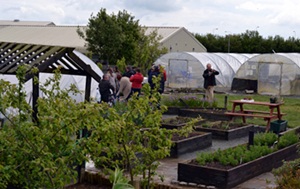
By simply offering people an opportunity to develop their knowledge and learn about growing plants, the Ballybeg Greens project has helped to create pride in their local community as well as employment and adult education opportunities that have led to higher education, teaching and social enterprise.
The project has helped to create an awareness in Waterford of the importance of locally grown, chemical free food, enabling the gardeners to build up a relationship with several Waterford restaurants. It has the potential to do so much more.
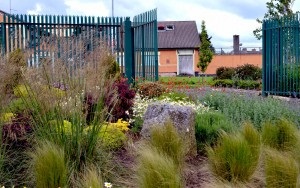
How Ballybeg Greens Began
The community development project (CDP) began in 2008 with an underdeveloped site in an area that houses circa. 4,000 people yet has a 41% unemployment rate. In February 2010 the CDP secured agreement to begin the community garden and allotment project. Lack of skills for growing food quickly became obvious so they started with a Fetac 3 course in horticulture and work began developing the 2 acre site.
Since then 180 students have passed through the centre, seven students have been re-employed, ten families have participated in the Healthy Food for All Family Growing project, 60 WAVE students have passed through, eight students from Focus Ireland as well as Skillnets. The CDP are now in a position to offer fully accredited FETAC training courses and in 2013, developed Ballybeg Greens, a not for profit food growing initiative that’s registered with the Department of Agriculture as a primary producer of salad leaves, herbs, specialist veg and edible flowers.
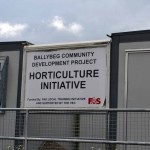
Ballybeg Greens is managed through the CDP (a charity and limited company) and they are currently supplying 11 local restaurants and have the potential to supply many more…
This inspiring group is on the cusp of doing much bigger and greater things as they’ve been allocated a further two acres by Waterford City Council, putting them in a position to supply 30 food outlets as well as offer part-time employment for a financial administrator, sales and marketing person as well as full time employment for a dedicated horticulture manager. They will also be able to increase the training potential with the additional space as well as offer the potential to diversify into other areas.
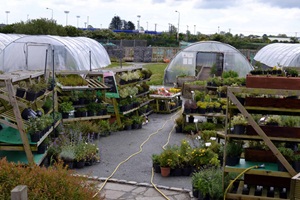
However, to attract the kind of funding needed to develop and create a sustainable business that supports the local community and helps to create health and well-being, Ballybeg Greens will have to create a limited company and increase their business knowledge, something that’s difficult in a society that’s geared towards business enterprise and not social and community development.
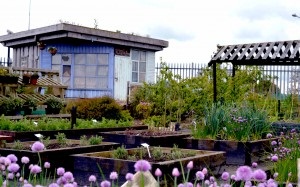
Having met some of the guys at various CGN network events and seen first hand the belief and passion this group have in the project, I have no doubt they’ll find the help and support they need. The measurable results achieved to date are a testament to their commitment to make it work.
It cannot be underestimated the importance projects such as these have on the self-esteem, growth and personal development of people and the knock on effect that has in local communities, helping to turn them into places of positivity and pride, where they might otherwise be filled with despair.
If you’d like to find out more about the Ballybeg Greens project, contact Liz Riches, Manager of Ballybeg CDP for more information.

Dee Sewell – a horticulturalist and certified trainer who started Greenside Up in 2009 and teaches people how to grow vegetables. Dee specialises in working with community gardens but also offers workshops, allotment visits, consultations, horticultural therapy, afterschools clubs as well as local talks – she tailors her services to meet clients needs. In 2012 Dee launched a Seed Gift Collection containing varieties of vegetable and insect friendly flowers with the aim of getting more people growing. Dee’s blog was a finalist in the 2012 Ireland Blog Awards in the Eco/Green and Lifestyle Categories.
Source: GreensideUp – How Horticulture Can Positively Influence a Neighbourhood – Dee Sewell




